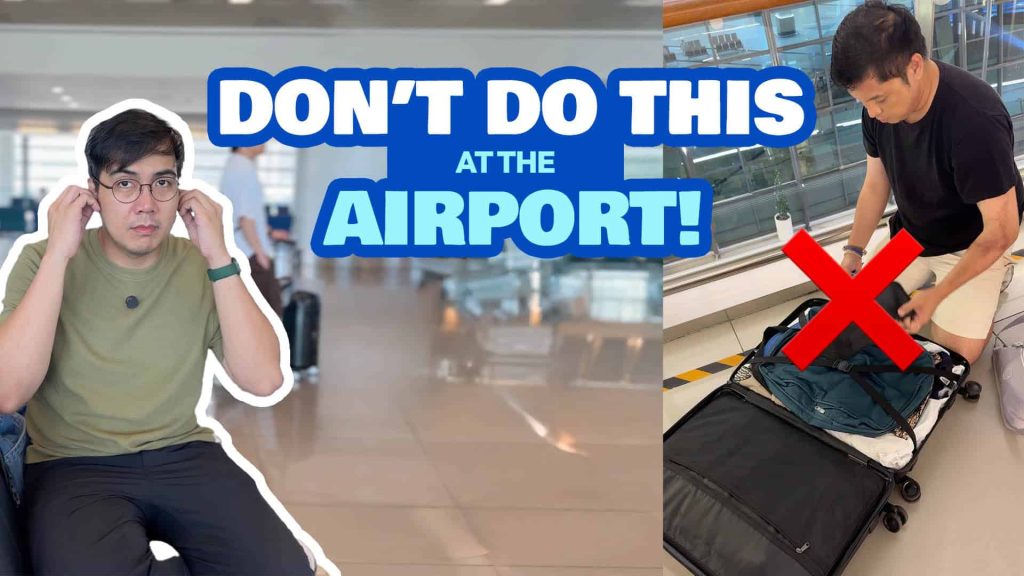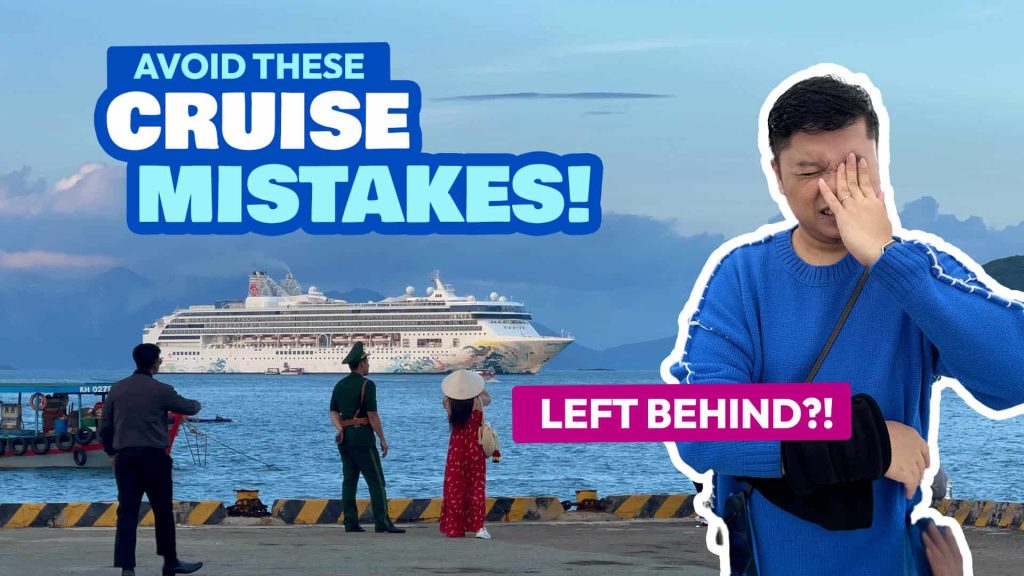The Ultimate Guide For Moving To Ecuador
Are you considering relocating to Ecuador? Quick Facts To Know:
The Republic of Ecuador is a South American nation and is a neighbor to Peru to its east and Colombia to the north, while the Pacific Ocean lies to the west. The official language of the country is Spanish while the capital city is Quito. Ecuador is divided into two parts, Galapagos Islands and the mainland. Furthermore, the mainland itself is divided into three regions by the Andes Mountains; the coastal lowlands, the central highlands, and the Amazon rainforest. Ecuador gained its independence in 1830 after being colonized and governed by the Spanish for more than 300 years. The Galápagos Island chain is 1,000 miles west of the mainland and is very distinctive. The islands are home to several endemic species that Charles Darwin studied in depth (including the waved albatross and blue-footed booby). Overall, Ecuador is regarded as the nation with the greatest biodiversity in the world, measured by area.
Around 18 million people live in the Republic of Ecuador, which spans 283,560 square kilometers. There are 24 different provinces. The Ecuadorian government has estimated the immigrant population at slightly more than 200,000, or 2% of the total population. There are 123,000 Colombian immigrants, 31,000 Peruvians, 22,000 Americans, 20,500 Spanish, 11,500 Cubans, 2,000 Canadians, 1,500 Venezuelans, and 1,500 Argentinians. The capital city of Quito is home to the majority of the country’s English-speaking immigrants, though Guayaquil and Cuenca also have sizable populations. Along the Pacific Coast’s La Ruta del Sol and in several smaller settlements in the Sierras, there are sizable ex-pat enclaves as well. With numerous special events and gatherings, ex-pats can be seen everywhere. The route is well-traveled.
The nation welcomes foreign investment and offers a variety of relatively flexible visa options. In the tourism, import/export, and hospitality sectors, many ex-pats have opened businesses.
With increased oil production, as well as exports of prawns, bananas, coffee, and flowers, Ecuador’s economy is strong and expanding. The government reports that over 93% of the population has access to health insurance, which is a mixed public-private system. Medical care is reasonably priced, even for those without insurance, and medical tourism is on the rise. According to data from 2011, Ecuador has a very high average life expectancy of 75.6 years.
Information That Is Useful
Money: US Dollar (USD). The USD is used as the official currency by a number of nations, including Ecuador. All paper money is in US dollars, but for local use, the government has also produced a number of coins in the denominations of $0.05, $0.10, $0.25, and $0.50. The $1 coin is much preferred to the $1 bill.
Languages spoken:
The official language of Spain is Spanish. In addition to these 13 languages and dialects, the Sierras are home to Quechua and Shua speakers (Andes). These are contemporary dialects that evolved from the tongues spoken during the Spanish invasion of the Inca Empire.
Major religions: Protestant (11%), and Roman Catholic (80%). The majority of the rest are Mormon, Buddhist, and Jewish believers.
Three major cities are Guayaquil, Cuenca, and Quito.
The people of Ecuador are warm and quick to smile. They are eager to meet foreigners. Even if it’s done poorly, trying to use some Spanish is praised. A simple handshake is expected when you are first introduced. But once they get to know you, women practice the beso (kiss), where they put their cheeks against each other and make a kissing noise. Men continue to shake hands with other men after women have given them a beso.
Why relocate to Ecuador?
Numerous communities in Ecuador have been named “Best Places to Live” and “Best Places to Retire” due to a combination of factors including a strong healthcare system, affordable living expenses, business opportunities, and a healthy lifestyle. This is particularly true for Cuenca, a historic university town with a Spanish colonial past and a vibrant English-speaking population that has grown dramatically in the past ten years.
In addition to the Galápagos Islands, Ecuador is a small country with a remarkably diverse biosphere and a rich cultural heritage. Other notable features include the Pacific Coast, the Andes Mountains, and the Oriente (Amazonian Rain Forest)
From being a politically and economically unstable nation, Ecuador has quickly transformed into one of South America’s more stable nations. There is a stable government, a steadily expanding economy driven by exports (especially oil), universal healthcare, and nearly universal access to education.
Foreigners are accepted and welcomed; Ecuadorians love to show off their families, cuisine, and country and are incredibly easy to get to know.
Working in Ecuador has its advantages, which include:
Every year, employees receive two extra paychecks (for the 13th month). One prior to Christmas and one prior to the start of the academic year (April). There are nine required holidays in Ecuador. There are also many different local holidays, such as Independence Day, which is observed in almost every city. Everyone who works has a right to 15 paid vacation days.
- The constitution of Ecuador mandates that every employee receive 15% of a company’s profits, to be paid in April.
- Ten weeks of maternity leave are compensated; 75% of the cost is covered by the government and 25% by the employer.
Even more benefits,
- The retirement age is 60. (this is sometimes extended to 70 years depending on the work history of the employee).
- People 65 and older are eligible for a number of discounts on goods and services, including transportation (such as a 50% discount on domestic flights).
- Fewer lines at the bank or supermarket are a result of the majority of businesses having separate lines for the disabled, expectant, and over 60 customers.
- When fired or laid off without good reason, employees who have been with the same company for more than three years are entitled to one month’s full pay for each year they were there. If fired, every employee is also entitled to receive an additional sum equal to 25% of their last month’s pay.
Living in Ecuador
With Inca Ruins, 500-year-old cathedrals, and mountainous jungle trails, Ecuador is a country rich in distinctive history and culture (often used for extreme sports competitions). It is a stunning location with stunning natural scenery, uncrowded but world-class beaches, lavish parks and gardens, breathtaking mountains, cloud forests, the Amazon rainforest, mangrove swamps, and highland plains.
It appears that each tiny village has a unique specialty. For instance, a village makes “Panama Hats” (the originals come from Ecuador, not Panama). Another village specializes in making hand-carved wooden furniture, while still, another makes rugs made of alpaca wool, and so on. The craftsmanship is extremely old, of the highest caliber, and surprisingly affordable.
Ecuador has a low cost of living. The monthly minimum wage in USD is $340. Most ex-pats discover they can live splendidly well for less than $1800 per month, frequently in a large home with a housekeeper/cook. Food is plentiful, affordable, and fresh (if you go to the local open-air markets).
In general, rent is reasonable (with the exception of upscale areas in the major cities). The majority of landlords favor renting to foreigners (ex-pats have a good reputation for paying their bills on time).
Ecuador Is Affordable: Electrical, water, cable, and telephone utilities are very affordable. The country has very good mobile phone coverage (at least around the larger towns and cities). There is affordable, widespread public transportation. Buses that travel long distances are sanitary, comfortable, and cost less than $15 almost everywhere in the nation. Taxis on motorcycles or small pickup trucks are common in rural areas.
Objections to Relocating to Ecuador,
Please take note that you might not be affected by these common ex-pat complaints.
- The difficulty in communicating, the disorganized transportation system, the stifling bureaucracy, and the strict import regulations are all cited as reasons why people dislike Ecuador.
- Ecuador is still a male-oriented society with a strong machismo culture, despite the fact that the situation there is not as dire as in the nearby countries of Colombia or Venezuela. Every conversation (from salespeople, doctors, and bankers, for example) will be directed towards the male if a woman is with a man. Even women will conduct business only with the man, oblivious to the other woman. This can be frustrating for people moving from Western nations, especially from the “anglosphere” of the USA, UK, Canada, Australia, and New Zealand.
- Like many Latin Americans, Ecuadorians follow their own schedule. A plumber may return in two weeks even if he promises to return on Wednesday to complete the job. The first guest will likely arrive at a party that begins at 6 p.m. at around 7 p.m.
- Transportation is widely available, inexpensive, and frequently crowded, noisy, rusty, and dirty. The upkeep of roads is frequently poor. Roads are frequently not marked with lanes, so it is common to see three or four lines of cars cruising down a two-lane road.
- Debts are paid off gradually by individuals. Systems for billing are illogical. It is common to not notice you haven’t received a water bill in three months until a crew arrives at your door to turn off the water.
- Rent and utility deposits are typically regarded as fees to cover installation. A deposit can be refunded, but it frequently requires several visits over several months to get the money.
- The quality of public and private school systems differ significantly from one another. What you pay for is what you get.
To protect local businesses and stop dollar flights, the nation uses a very strict system of import control. Vehicles, electronics, and foreign foods all carry import taxes that can reach 100%. The cost of imported goods is high despite the low wage structure. Prices for used automobiles, computers, and cell phones that foreigners would deem exorbitant are common. - It can be challenging and confusing to navigate government regulations and bureaucracy. A local abogado (lawyer) is needed to cut through the red tape when purchasing or renting property, as well as when establishing any type of business.
Relocation options to Ecuador for US citizens
The government of Ecuador offers multiple options for relocation to US citizens on a temporary and permanent basis. We will discuss each of them in this article and cover the most fundamental requirements in this regard.
To start with, it is important to note that a US citizen does not require a visa to enter and stay in Ecuador for up to 3 months (90 days) within any given year. Staying beyond this time will require a purpose and a relevant permit or visa.
Here are a few cases which may compel a person to stay in the country over the 90-day stipulated period.
Retirement
Many well-to-do Americans plan to spend their remaining life close to nature and with a laid-back lifestyle. These retirees usually live off their pensions or returns from investments they have made. To cater to such an audience, Ecuadorian immigration offers a “retirement visa” under which the holder can stay in Ecuador indefinitely, provided the requirements continue to be met.
The most important eligibility requirement is a steady minimum income; social security, retirement pension, or investment returns. Officially the retirement visa is known as the ‘Pensioner Visa’ and is awarded on the below conditions:
- The age of the applicant must be 65 or above
- Proof of monthly stable income of no less than US$ 800 and US$100 for each dependent added subsequently
- The applicant must have comprehensive health insurance coverage, effective in Ecuador
- It must be proven that the applicant has a clean record and is not wanted for any inquiry in the US or abroad
- Documents such as Social Security ID, Passport, Academic Degrees, etc.
Investment Visa
This visa is targeted toward investors and skilled entrepreneurs. The investment can be made in tourism, construction, real estate, manufacturing, etc., essentially creating local employment. The investment requirement varies depending on the industry, the nature of the business, and so on.
Besides the usual documentation requirements for an Ecuadorian visa such as a valid passport, accommodation, criminal record, etc., the foremost condition to qualify for an investment visa is the amount of investment. The exact amount may vary depending on various factors, however, the minimum investment shall not be less than US $45,000. Additionally, the investment can only be made in a sector or industry specified by the Ecuadorian government. Usually, the investment areas are agriculture, tourism, real estate, hospitality, etc.
Professional Visa
Another category of long-term residence visas pertains to professionals and highly skilled individuals. Professions such as hoteliers, accountants, doctors, physicians, doctoral candidates, renewable energy experts, IT experts, etc. are highly sought after.
Employment for such professionals is easier to obtain in Ecuador as the country is investing heavily in infrastructure and developmental projects. A professional visa is also known as the 9-V visa.
Spousal Visa
A spousal visa or marriage visa is awarded to a person who is married to an Ecuadorian citizen. People living together as a couple can also apply for a spousal visa. The holder of such a visa can live indefinitely in the country as long as the relationship is not legally dissolved.
Non-Immigrant Visa
So far, we’ve discussed visa types that eventually lead to citizenship or permanent immigration. There are other relocation options available that do not lead to immigration directly, however, do allow the holder to stay in Ecuador for prolonged periods. Examples of such visas are student visas, healthcare/medical treatment visas, work visas, volunteer visas, etc.
A business visa can be obtained by travelers who can prove that they are business owners or employees. This can be renewed multiple times for a period of one year. There are numerous limitations on how businesses can operate in Ecuador, such as the requirement that at least 80% of the workforce be native to the country. People conducting any kind of business in the nation are generally advised to use an attorney.
Citizenship and Long-Term Residence
An appropriate visa (for volunteer or cultural exchange positions) or identity cards, known as cedulas or censos, are required for people who want to live and work in Ecuador. You can be eligible for a work or residency visa by, for example:
If a person invests between $10,000 and $25,000 in Ecuador, depending on the specifics, they may be eligible for a resident investor visa. The money must either be deposited in an Ecuadorian bank or directly invested in the investment (a business, piece of real estate, etc.). It is advised that you work with an experienced abogado to explore your options because the specifics of the situation and the required sum vary greatly.
Professional visas can be extended almost indefinitely and are valid for up to one year. It is intended for professionals (such as doctors, teachers, and other licensed professionals) who wish to work in Ecuador and have a recognized university degree.
For those wishing to retire in Ecuador, pensioner visas are available. A person must be able to prove that they are receiving a monthly pension from their home country of at least $800.
How to Launch a Business in Ecuador
Numerous opportunities exist in Ecuador thanks to its expanding economy and stable political environment. Successful restaurants, hotels, inns, and tour companies have all been founded by numerous ex-pats. Given that, there are a few things to keep in mind regarding Ecuador’s distinctive business culture:
Hire an accountant and a lawyer first. The tax and employment laws of Ecuador can be confusing to an outsider. Local experts can assist you in the beginning stages and prevent you from making costly errors.
Pay attention to the expat communities in Cuenca, Guayaquil, Quito, and other cities along the Ruta del Sol. Other ex-pats who are familiar with the system can give you crucial advice and connections. Most of these locations also have regional chambers of commerce specifically for foreign-owned businesses.
Do not rush. Ecuador’s government and businesses operate at their own pace. Here, business is as much about identifying a market opportunity as it is about contacts (who you know). One must realize that everything in Ecuador takes longer than anticipated, so if you expect to rush through the process, be prepared for frustration (and plan accordingly).
References & Links
- Embassy of Ecuador in the USA – official site
- Consulado Virtual: Visas – a detailed breakdown of all visa types
The education system in Ecuador
The Ministerio de Educacion (Ministry of Education) of Ecuador is responsible to implement and regulate education policies throughout the country. Compared to its neighbors, Ecuador has a progressive education policy that focuses on producing qualified individuals to fulfill the industry’s demands.
Education is divided into pre-schooling, primary, secondary, higher education, and vocational training. The minimum age for preschool education is 3 years while the maximum age is set at 5 years. Secondary education includes grades 7 through 10, after which the students are shifted to higher education or can opt for vocational training.
The healthcare system in Ecuador
The healthcare system in Ecuador is a combined program run through public and private partnerships. Primary and secondary healthcare establishments are mostly owned and operated by the state while tertiary hospitals, trauma centers, and specialized healthcare establishments are owned and managed by the private sector.
The state provides healthcare assistance to all its citizens, residents, and uninsured individuals, whereas donation-based treatment programs are also available for the underprivileged section of society.
The healthcare system has undergone several changes and upgrades over the years, and though it may not be the best system in the world, the state strives to make the minimum standard of service delivery across the country.o Top








